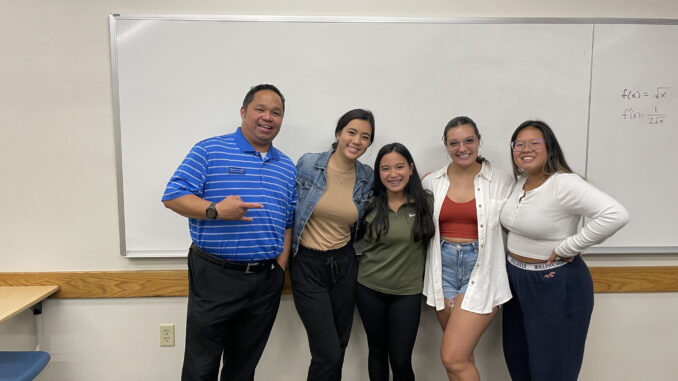
Max Marcello | Staff Writer
Sept. 22, 2022
In the spring of 2019, student Sam Espiritu founded the Filipino Student Organization, which would later become the Duquesne branch of the Filipino American Student Association (FASA). While its initial focus was on the Filipino-American community, it has since expanded to include other students across different ethnicities and backgrounds. According to FASA, its mission is to create a welcoming and supportive community for Duquesne Filipino students.
The organization aims to explore cultural connections through cuisine, family history and various activities in order to foster a place of belonging for all Filipino-American students connected to the diaspora experience. What started out as a handful of friends has since become a university recognized club with over 20 members to help with this mission.
On Sept. 15, the organization inaugurated its 2022-2023 season with its returning and new members. After distributing Lumpia, also known as Filipino Spring Rolls, the executive board mapped the fall agenda. FASA’s executive board current membership is president Carmela Gorres, vice president Alexis Epondula, secretary Emmala Le, and treasurer Sloane Irwin. Although FASA primarily focuses on the needs of the Filipino community, it also works closely with other student clubs.
Since its inception, FASA has been sponsored by Giovan Cuchapin, a faculty member at Duquesne’s Campus Ministry. Cuchapin has been frustrated at the negative impact the Covid-19 pandemic had on the emerging organization’s growth and participation.
“We did not have that many activities during Covid,” Cuchapin said. “We stayed afloat by organizing Zoom meetings.”
However, following the easing of restrictions, FASA soon rebounded. Its first major event, a karaoke night at the Laval House, was attended by almost 50 students. Cuchapin is convinced that despite the setbacks of Covid, the organization will continue to grow and strengthen in the semester ahead.
“We are still in the rebuilding phase, and we are planning on building upon our success from last year,” Cuchapin said.
Another longtime member is Carmela Gorres. Gorres, a forensic science and law major, has participated in FASA since her freshman year. Now a senior, she is the president of FASA and plans to implement several changes to FASA to prepare it for the future.
One change is the creation of two new executive board positions by the spring semester. Another topic she and the board hope to address is continuing FASA’s growth by holding a karaoke night and more events throughout the year.
“Karaoke is a much-loved event and we hope to host karaoke night once every semester,” Gorres said.
FASA, in conjunction with the Asian Student Association, has announced “Bite of Asia,” an event which celebrates the different culinary styles of Asia. It will be held on Oct. 19 at 6 p.m.
Another event discussed was a FASA-sponsored Kamayan, which is more commonly known as a Boodle Fight in the United States. It is a Filipino feast, where there is a strong sense of community with a casual atmosphere of sharing a meal by using your hands to eat.
In addition to broadening students’ cultural frame of reference, FASA also stays true to its roots and seeks to meet the needs of Filipino students settling in the United States. Vito Palou, a freshman from Quezon City, acknowledged the adjustments he had to make when coming to the United States, such as applying for car and health insurance, in addition to obtaining a driver’s license.
He stressed how much FASA has helped him, while also explaining that his experience at Duquesne has been a positive one, as he feels welcomed.
While a date and time for karaoke night have not yet been solidified, students interested in both karaoke night and FASA are encouraged to follow their Instagram account @fasa.duq for the latest information.
As the 2022-2023 season commences, the atmosphere at FASA is one of optimism and inclusion, as students from all backgrounds and experiences are welcome to join. Gorres discussed her aspirations for FASA this year.
“I hope that the group will become closer and that we will be able to build a positive, safe community around us,” Gorres said.
The organization remains committed to meeting the needs of the Filipino-American students at Duquesne, as well as introducing a new cultural perspective to the greater university community.

